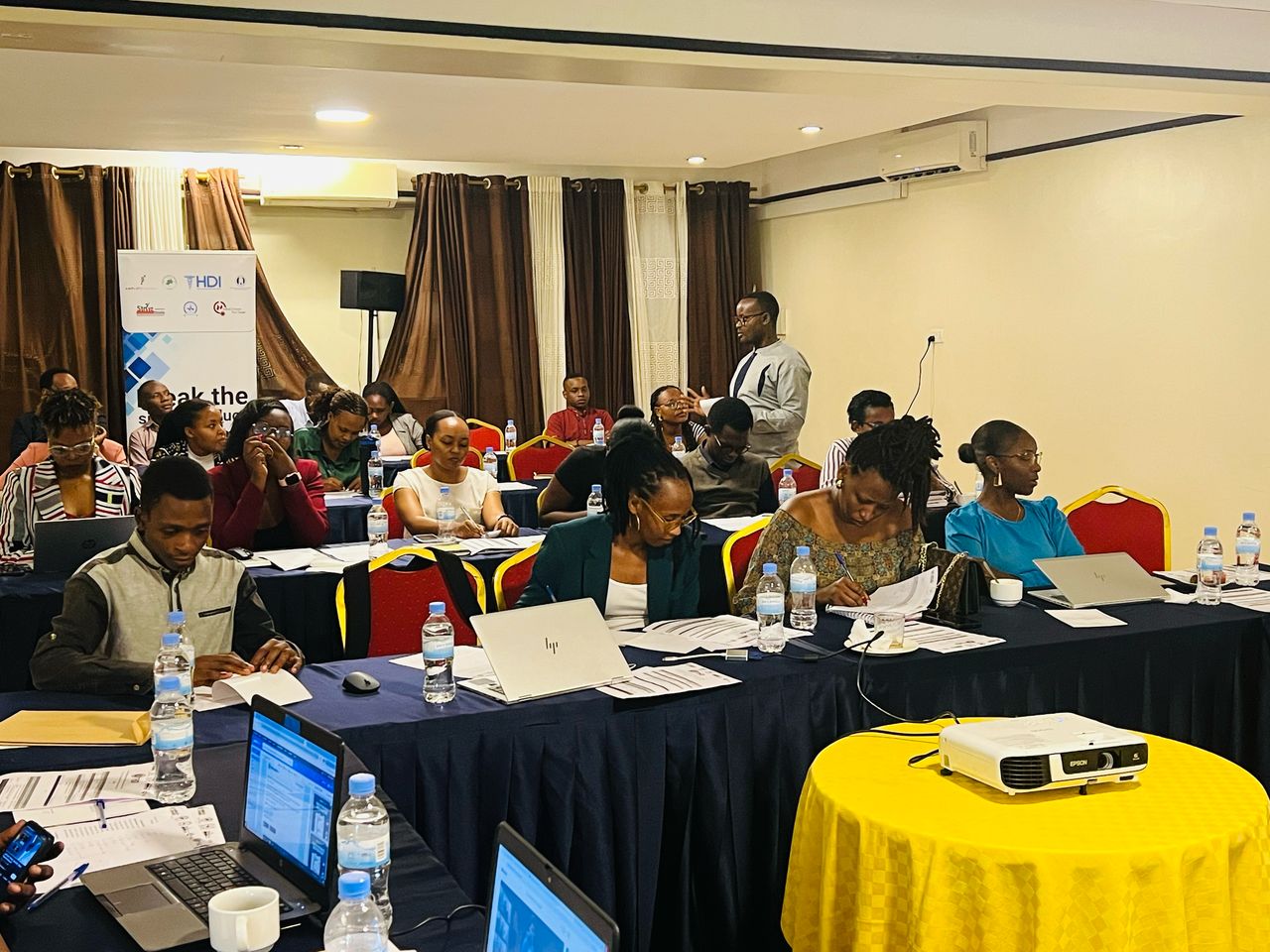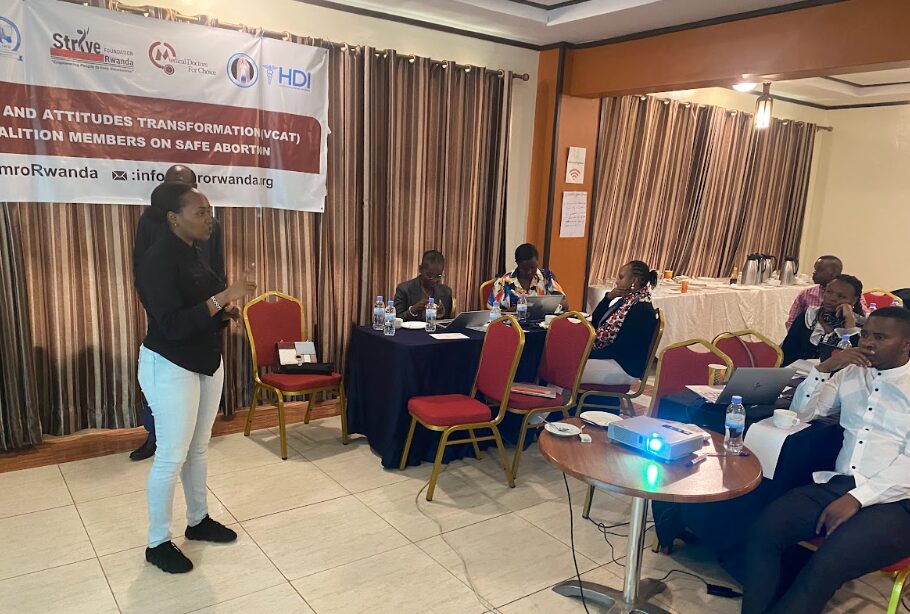
MDFC participated in a four-day Values Clarifications and Attitudes Transformation (VCAT) workshop aimed at members of the Safe Abortion Coalition. The workshop brought together 30 participants from diverse organizations in Rwanda to engage in discussions about the importance of safe abortion services, focusing on transforming attitudes and clarifying values related to abortion advocacy. The goal was to equip coalition members with the knowledge, skills, and attitudes necessary to advocate effectively for and support access to safe abortion services, as well as to deepen their understanding of the human rights and public health aspects of abortion.
The overall objective of the workshop was to ensure that participants could confidently advocate for safe abortion services, having clarified their personal values and attitudes regarding abortion. Specific objectives included enhancing understanding of safe abortion as a human right and a public health issue, addressing myths and misconceptions surrounding abortion, exploring the legal and policy frameworks related to abortion in Rwanda, and equipping participants with effective communication and advocacy skills for supporting safe abortion and sexual and reproductive health rights (SRHR).

Day 1: Identifying Systemic Barriers: The first day focused on analyzing systemic barriers to accessing safe abortion services. The discussions drew on the WHO’s May 2024 report, revealing that 60% of pregnancies globally are unintended and that Rwanda’s abortion rate stands at 54%. Participants learned that although Rwanda’s abortion laws permit the procedure in five circumstances—rape, incest, forced marriage, minor pregnancies, and maternal health risks—there remain significant barriers to access. These include entrenched societal stigma, widespread misinformation about sexual and reproductive health rights (SRHR), and a lack of awareness regarding legal provisions. As such, the demand for safe abortion services is often driven more by necessity than legal permission, with cultural norms continuing to restrict women’s agency, even in the presence of progressive legislation.
Day 2: Debunking Myths and Understanding Global Data: The second day addressed global statistics on unsafe abortion and its devastating impact. Unsafe abortions account for 45% of all abortions globally, with 21 million cases annually. Data highlighted the fact that unsafe abortions disproportionately affect women in low- and middle-income countries (LMICs), with 218 million women in these regions facing unmet contraception needs. Of this, 43% of adolescents aged 15–19 and 24% of women aged 20–49 are affected. This data provided a compelling argument for evidence-based advocacy. Additionally, participants discussed the importance of understanding the legal frameworks and societal norms in Rwanda and how these factors shape the abortion landscape. The day ended with a reflective discussion on who should have access to abortion and whether a woman has the right to decide on her reproductive health, allowing participants to share their perspectives.

Day 3: Comprehensive Abortion Care: Building on the insights from Day 2, Day 3 focused on delivering Comprehensive Abortion Care (CAC). The workshop emphasized that safe abortion services are not just clinical procedures but should also include pre-abortion counseling, thorough patient education, and post-abortion support. Participants discussed the significance of both medical and psychological aspects of care, as well as the need for family planning services to prevent future unintended pregnancies. CAC aims to provide holistic care that supports the woman’s physical, emotional, and socio-economic well-being.
